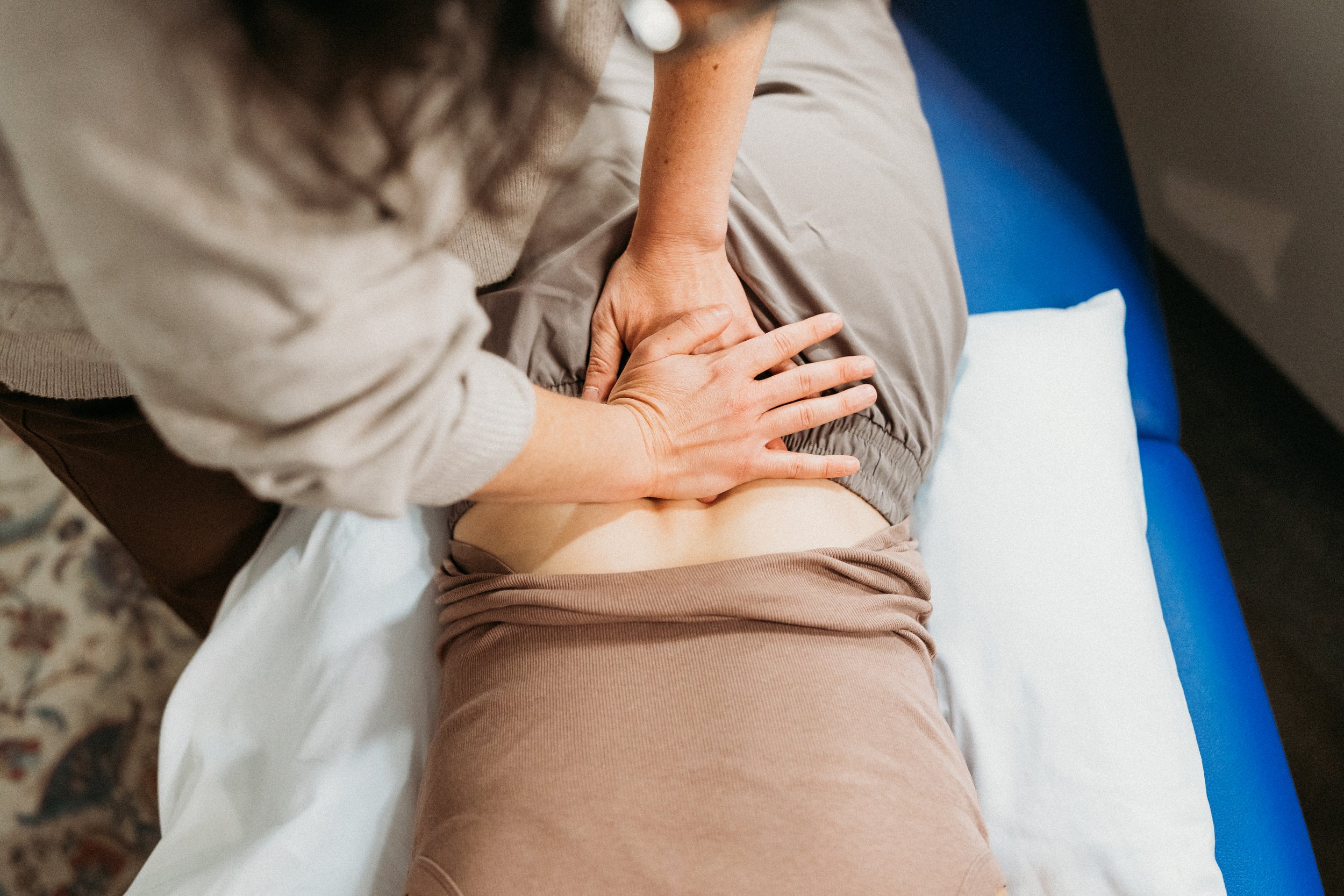

Services
ATX Pelvic Health provides evidence-based solutions for common treatable issues like pain, weakness, and leakage.
We help you feel more like you!
-
In order to grow a small human, many muscles must stretch and effectively ‘get out of the way’ for birth. The second trimester is a fantastic stage to learn birth prep, strategies to support your changing body, and considerations for postpartum recovery. Manual therapy is a fantastic tool for managing common pregnancy-related aches and pains.
Sacroiliac Joint Dysfunction
Symphysis Pubis Dysfunction
Pelvic Girdle Pain
Carpal Tunnel
Sciatica
Neck and Back Pain
Joint Pain (Foot, Ankle, Knee, Hip, Shoulder, Elbow, Wrist)
Pelvic Floor Prep for Labor and Delivery
Foundational health TTC (trying to conceive)
-
Your pelvic floor is a group of muscles that attach to the bottom of your pelvis. These muscles support your bladder, rectum, and reproductive organs, and they help control the functions of those organs: peeing, pooping, sex, and childbirth. Muscles that are overactive or underactive may contribute to symptoms like pain and leakage.
Urinary Incontinence
Urinary Urgency or Frequency
Pelvic Pain
Painful intercourse (Dyspareunia)
Genitourinary syndrome of menopause (GUSM)
Vulvar and/or Vaginal Pain
Vulvar Varicosities
Interstitial Cystitis
Bowel Incontinence
Chronic Constipation
-
Pregnancy and birth are hard on the pelvic floor and abdominal wall. Pelvic rehab should be standard care for all birthing people. In fact, pelvic rehab *is* standard care across Europe. In the ‘orthopedic world’ we would never discharge a woman with a quad tear at six weeks. We would load the tear gradually in a rehab program. Pelvic floor and abdominal wall deserve the same care. Learn to rebuild strength and feel like yourself again.
Diastasis Recti Abdominis
Umbilical hernia
Abdominoplasty (tummy tuck)
Pelvic Organ Prolapse
Scar Tissue Adhesions (cesarean or perineal)
Neck/Back Pain
De Quervain’s Tenosynovitis (“Mommy Thumb”)
Return to run
Return to weight lifting
-
Hormone-sensitive breast cancers may require estrogen-blocking medication. Learn to manage menopause-like pelvic floor symptoms such as pain and leakage.
Dyspareunia
Stress urinary incontinence
Urinary urge frequency
Lymphedema
Radiation fibrosis
Mastectomy related shoulder pain
Chemotherapy related deconditioning
-
Estrogen plays a role in most of our body systems, including our muscles and bones. Hormonal changes are often a player in certain orthopedic issues like tendinopathies and osteoporosis. Manual therapy and exercise have been shown to improve these issues.
Gluteal tendinopathy (hip pain)
Rotator cuff tendinopathy (shouder pain)
Plantar fasciopathy (heel pain)
Osteoporosis
Osteoarthritis

